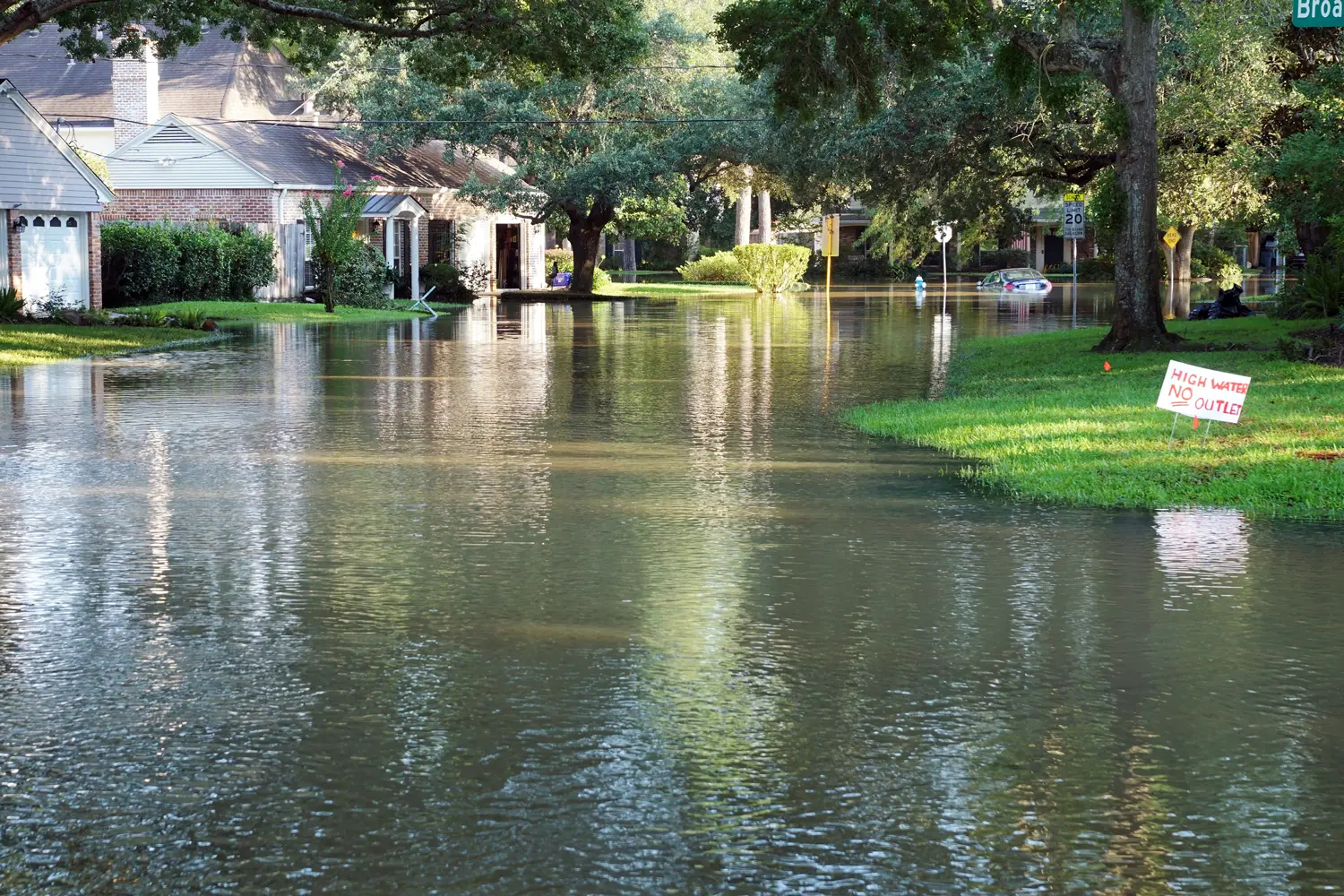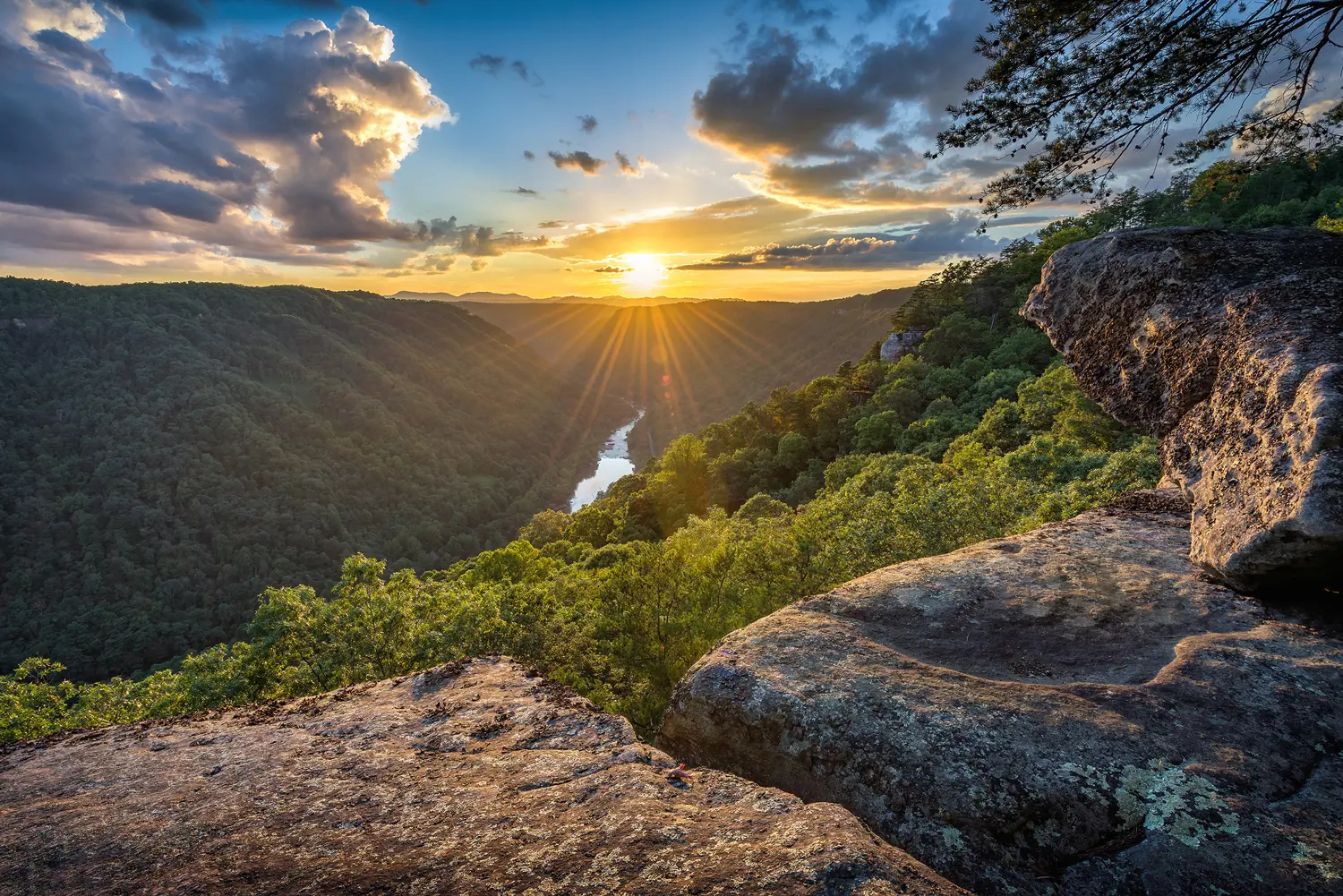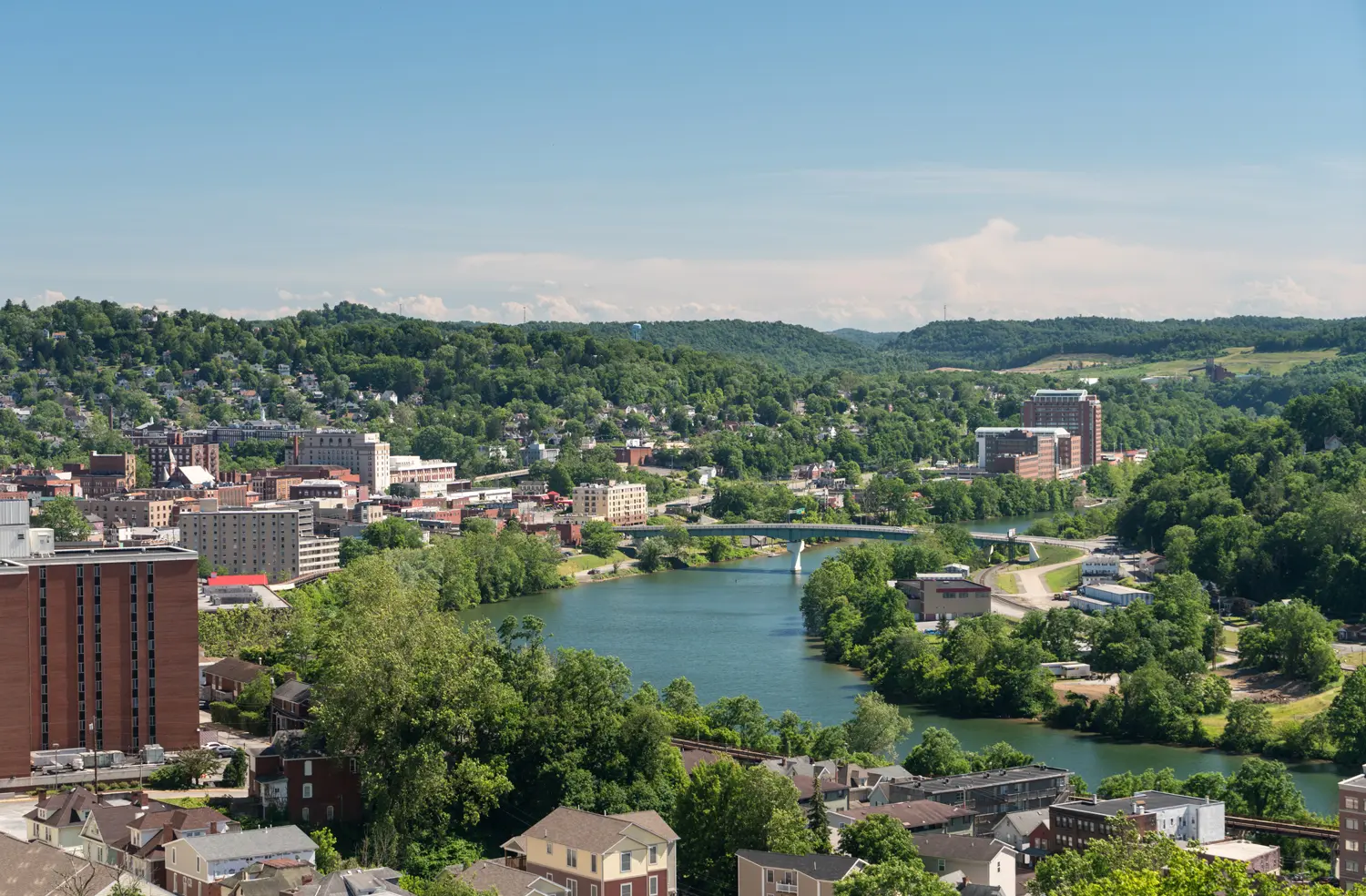
2024 Riverine Community Resilience Challenge
$1 million for disaster protection innovations in Southwest Virginia
Meet the Winners
We asked innovators to develop advanced flood warning systems and community-driven insurance solutions to protect vulnerable communities. They quickly rose to the challenge. These winners will receive up to $375,000 to pilot their cutting-edge ideas in the living-labratory of Southwest Virginia through 2025. Beyond financial support, RISE is providing Challenge winners technical, government and business mentoring, investor matchmaking, customized accelerator programs and more.
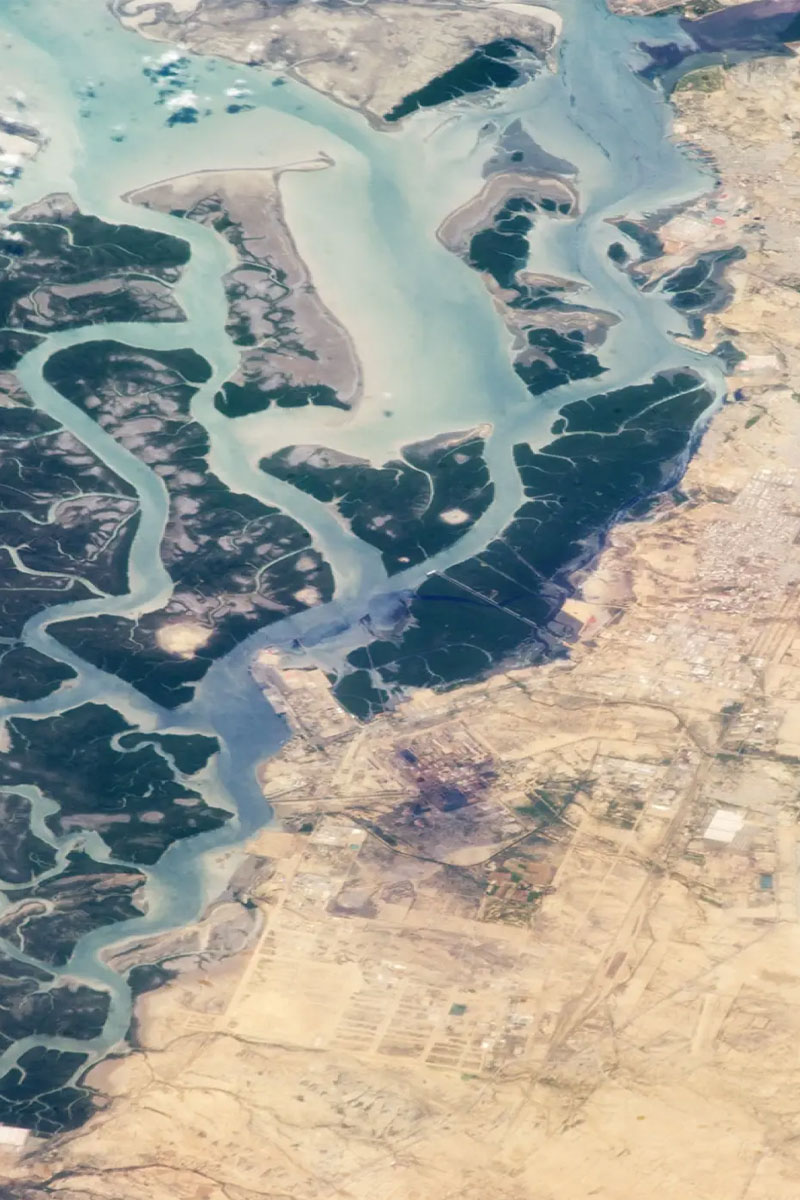
Floodbase / Raincoat
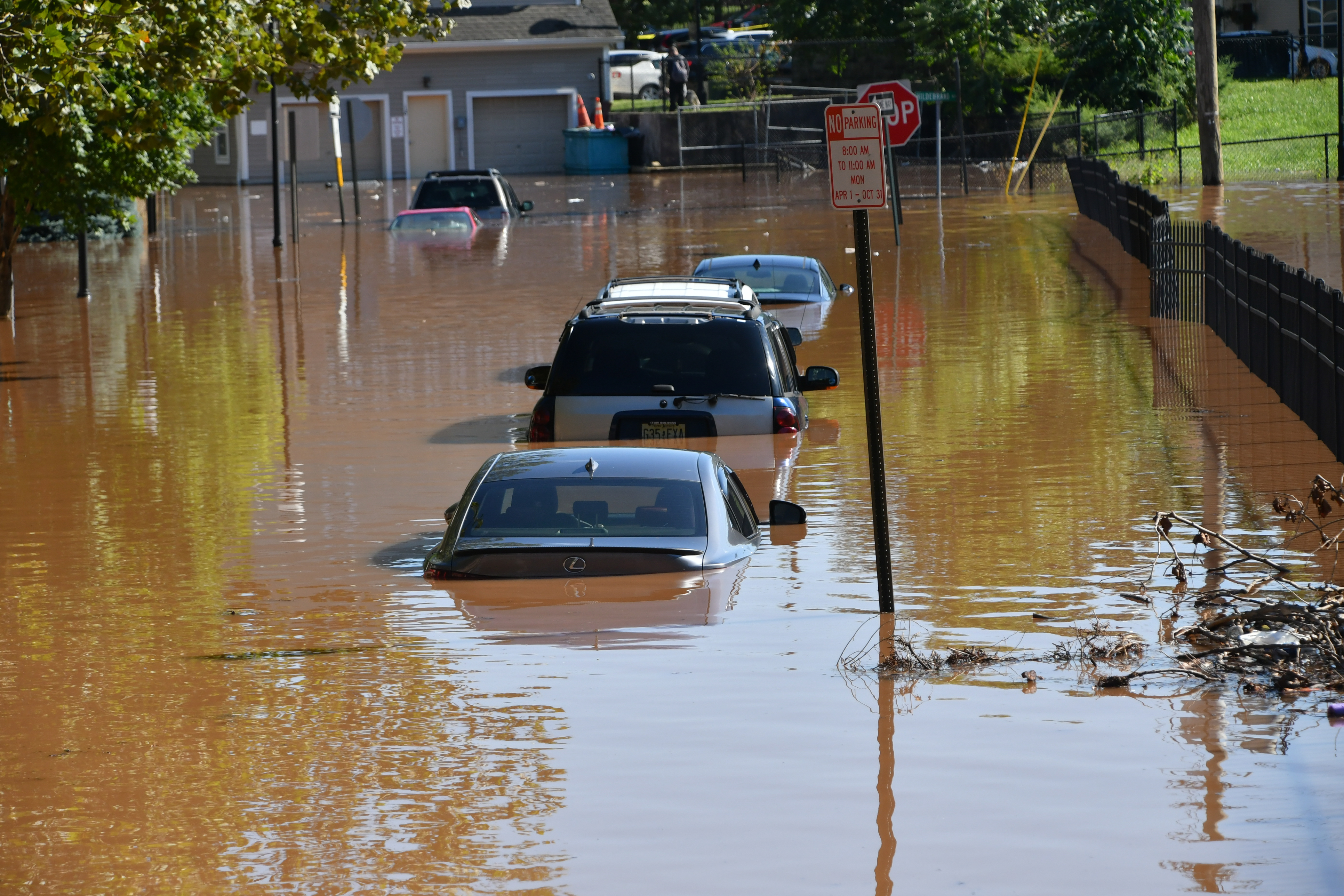
FloodMapp / The Warn Room / Green Stream

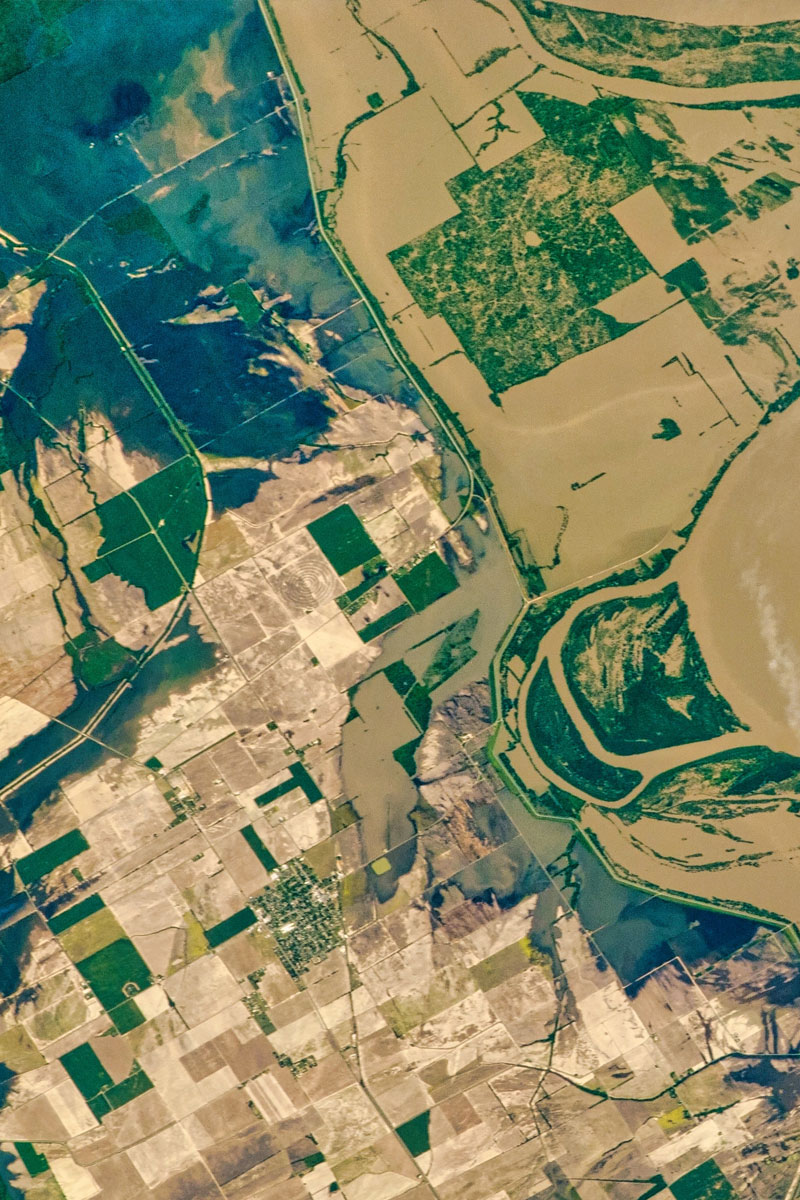
Be the solution for vulnerable flood-prone riverine communities
On August 30, 2021, the remnants of Hurricane Ida dropped 7 inches of rain in the small Southwest Virginia community of Hurley. The consequences were severe, including a flood that destroyed 19 homes, severely damaged 24 more, and tragically took one life. Less than a year later, similar circumstances struck Virginia’s Whitewood and Pilgrims Knob communities. Twenty-one homes were destroyed and 25 damaged, but fortunately, no lives were lost. Yet in both cases, FEMA did not provide individual homeowner assistance, and few affected residents received insurance payouts.
With its rich biodiversity and socio-economic fabric, Southwest Virginia offers a unique testbed for developing, testing, and refining innovative solutions that enhance environmental adaptability. Innovators have a rare opportunity to validate their technologies in real-world conditions, ensuring their solutions are both effective and scalable across different ecosystems and cultures. This living laboratory allows you to turn today's threats into tomorrow's sustainable opportunities, fostering a replicable model of adaptation.
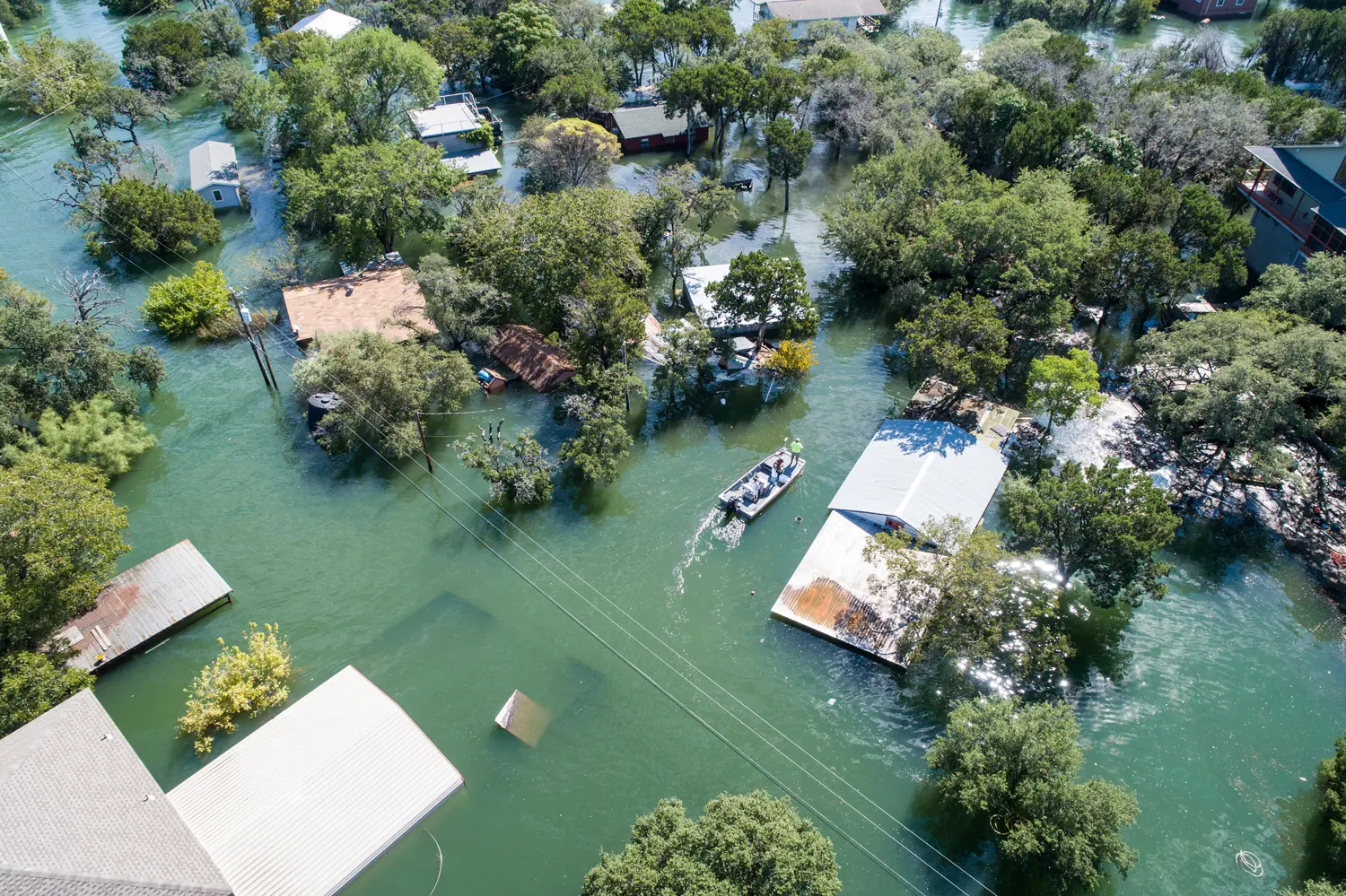
From 2000-2018 water-related disasters led to 326,000+ fatalities & economic losses over $1.7 trillion.
Challenge Topics
Topic Areas
Weekly Challenge Webinars
Overview of the Challenge, topic areas, and insights on how to apply.
Paul Robinson, Executive Director, RISE
Join us for an overview of the Riverine Challenge, topic areas and insights on the application process.
Watch Now →Beyond the Banks: Emergency Management Flood Response Strategies in Rural Riverine Communities
Jessica Swinney, GISP, Emergency Management Coordinator, Wise County
Thinking about applying for the RISE Riverine Community Resilience Challenge? Start here with this informational video in which RISE Executive Director Paul Robinson and Wise County GISP Jessica Swinney discuss challenges facing SW Virginia.
Watch Now →Riverine Community Resilience Challenge Webinar Three
Scotty Wampler, Executive Director, Cumberland Plateau PDC & Kevin Kochersberger, Associate Professor, Department of Mechanical Engineering, Virginia Tech
Thinking about applying for the RISE Riverine Community Resilience Challenge? Start here with this informational video in which RISE Executive Director Paul Robinson, along with guests Scotty Wampler, Executive Director of the Cumberland Plateau PDC and Prof. Kevin Kochersberger of the Department of Mechanical Engineering at Virginia Tech,discuss challenges facing SW Virginia.
Watch Now →Riverine Community Resilience Challenge Webinar Four
Francis Bouchard, Managing Director, Climate, Marsh McLennan & Paul Robinson, Executive Director, RISE
A discussion of the current and future possibilities of insurance protection in rural riverine communities
Watch Now →Eligibility
- You have to be a business entity.
- Your business has to be able to deploy your solution in Southwest Virginia, either by yourselves or by hiring a local partner.
- Your solution has to be at the prototype stage or later.
- If you are selected as a finalist, you will be required to submit additional documentation, including technical details of your solution and a work plan.
- Finalists will be required to register with the Virginia State Corporation Commission (SCC).
Awards
- Real-world pilot sites in Southwest Virginia
- Feedback from government pilot hosts
- Government, technical, and business mentors
- Regulatory assistance with permits and government funding
- PR opportunities and media visibility
- Introductions to potential investors and customers
- The only ecosystem of coastal resilience entrepreneurs in the U.S.
Timeline
* All dates are subject to change
The eligibility requirements differ for each Challenge, but generally:
- Your company will be required to meet the definition of a small business, as defined by the U.S. Small Business Administration and found under 13 CFR Section 121.201, or qualify as a 501(c)(3) non-profit entity.
- Your company must be able to test/pilot your solution in Southwest Virginia
- You must be prepared to deploy your solution and spend all of the revenue-based loan or grant by a predetermined date stated with each Challenge
- Your technology has to be past the prototype stage or already have customers using your technology
- If you are accepted as a finalist, you will be required to submit further documentation such as technical details of your solution, a work plan, and financial projections within 14 calendar days of being notified of you finalist status
- Finalists will be also required to obtain a DUNS number and register on Sam.gov
For detailed information, please read the Applicant Guidelines posted on the Challenge webpage.
Yes, you can partner with a larger company as long as your project proposed to the Challenge is led by you as a small business.
RISE offers one-stop-shop resources and a living testbed to innovators in the coastal resilience sector. Winners receive wrap-around support including:
- Non-equity funding in the form of a grant
- Customized business accelerator curriculum
- Technical, government, and business mentors
- Assistance with securing real-world pilot and test sites in the Southwest Virginia region
- PR and media visibility
- Technical assistance with government regulatory compliance
- Ongoing support throughout the duration of your project
- Introductions to leaders, experts, and other stakeholders in Southwest Virginia
- Introductions to potential investors
- The only ecosystem (40+ previous Challenge winners) of coastal resilience entrepreneurs in the U.S.
Applicants can apply for non-equity funding up to a predetermined amount for each Challenge. RISE Resilience Innovation Fund awards come in two forms: 1) Revenue Based Loan and 2) Grant. Grant awards may be combined with the Revenue Based Loan. The award type and amount is determined by the RISE Executive Director based on the scoring and recommendations of the RIF Investment Committee.
Grants
Grants are awarded for the costs of product development, project setup in Southwest Virginia, and Southwest Virginia-focused use case discovery and development. All grant funds must be fully expended by a predetermined date set with each Challenge.
Payments made to the awardee under the grant are made on a reimbursement basis for eligible costs.
Our grant has come from a variety of sources aligned with each Challenge, including funding from the U.S. Department of Housing and Community Development, Virginia Department of Housing and Community Development, and GO Virginia.
We look for startups, small businesses (as defined by the U.S. Small Business Administration) and nonprofit entities that are at the post prototype stage. Please see the definitions below:
Prototype: An entity building and testing its product, service, or business model. Typically described as “Pre-Seed” if For Profit. Pilot: An enterprise deploying a tested product, service, or business model in at least one community. Hybrids and For Profits would typically be in a “Seed” round and generating revenue (whether or not they are cash flow positive). Growth: An entity with an established product, service, or business model rolled out, which is poised for further growth in multiple communities or countries. Organizations at this stage should have a clear path to sustainability. For Profits at this stage would be “Seed” or “Series A.” Scale: A sustainable entity working in several communities or countries and that is looking to scale significantly, focusing on increased efficiency. For Profits in this stage would be “Series A” or “Series B.”
Eligibility extends to U.S.-based companies and registered nonprofit organizations.
Businesses that are accepted into our program need to deploy their solution in the Southwest Virginia area, either themselves or by hiring or partnering with a local entity to deploy your solution. We only select projects that can provide a demonstrable benefit to our testing ground in the Greater Southwest Virginia region, while being scalable to other communities.
The project can be implemented in a smaller target area with a view to scaling with additional funding. The actual location can be decided by the winner and the PDC’s. The project funded in this Challenge will be a proof of concept.
The funding will be in the form of a grant, a revenue based loan, or a combination of the two. This is the approach that has been used in the past.
None yet since none of the costs (or solutions) are known. There needs to be a discussion with the Commonwealth on what they are willing to support. However the premise behind the State giving RISE funds to run this Challenge I s that they wanted us to find solutions and they know that the PDC’s are limited in resources.
We will not know until the deadline on May 6.
I am sure there are riverine flooding issues in Georgia per the FEMA map (southwest/northwest Georgia), For our Challenge the work must be done in Virginia.
That would be for the team to ascertain if needed. We have no relationships with the local weather services.
No. Submissions are due May 6 2pm. EST. If you have other specific questions please send them and we will answer.
Arcgis and Arcgis pro to publish REST services. We utilize an online interactive gis platform to display our data for public use.
Wise county does not promote flood insurance.
Wise County follows the County ordinances and FEMA guidelines for flood mitigation. There have been no FMA grants in the past three years. The last grant award was in the Town of Wise in 2019 for 16 acquisitions.
There is a list in the applicant guidelines that will tell you what can be covered/not be covered.
The info was from press reports only. I would imagine NWS has some archived data.












